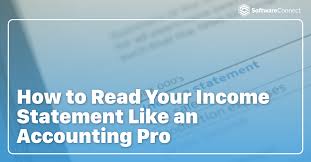Key Performance Indicators
Accountants Can Help Key Performance Indicators are fundamental measuring performance determining which metric are driving companies forward
Key performance indicators are fundamental for measuring performance and accountants can help with creating and measuring them. But which metrics are driving companies forward?
Accountants Can Help Key Performance Indicators that have long been a fundamental tool for a company’s management and accountants to measure performance. KPIs focus management’s attention on a finite array of statistics that are indicative of a company’s performance, and are believed to have explanatory power over the company’s desired financial results, such as profitability.
Accountants note that Key Performance Indicators have significant weaknesses, however. KPIs are backward-looking. When your KPIs are where you want them to be, everything is great. When the KPIs fall short of expectations or goals, there are problems to be addressed. There is, necessarily, an information lag between firm activities and most KPI reports.
Accountants Can Help Key Performance Indicators are powerful in that they help to address information overload. Any manager or accountants has more information available, or even thrown at them, then they can process in a timely and coherent manner. KPIs allow us to wrestle the fire hose to the ground and point it to where the fire is — or at least in its general direction.
Because Accountants Can Help Key Performance Indicators are generally quantified (or at least quantifiable), they provide an objective tool for measuring the performance of a business at all levels, from the enterprise level to the business unit, team, department, accountants, and the individual employee. KPIs serve as the basis for reporting performance, providing feedback on performance, prompting a discussion over what changes, if any, need to be made to the relevant business processes or assets devoted to them, and then implementing those changes. KPIs are often used for goal setting and compensation is frequently connected to them as well.
Income statement (also referred to as profit and loss statement (P&L), revenue statement, statement of financial performance, earnings statement, operating statement, or statement of operations) is a company’s financial statement that indicates how the revenue (money received from the sale of products and services before expenses are taken out, also known as the “top line”) is transformed into the net income (the result after all revenues and expenses have been accounted for, also known as Net Profit or the “bottom line”). It displays the revenues recognized for a specific period, and the cost and expenses charged against these revenues, including write-offs (e.g., depreciation and amortization of various assets) and taxes. The purpose of the income statement is to show managers and investors whether the company made or lost money during the period being reported.
Key performance indicators are fundamental for measuring performance and accountants can help with creating and measuring them
As a Miami accountant the idea I had to “Delight” or “Wow” clients become so entrenched I never questioned it
Accountant firms for decades saw little upside to providing basic Accountant accounting services but technology and the cloud is makes it profitable



